From the School of Humanities and Education of Tecnológico de Monterrey, the graduating students for the Bachelor’s degree in Educational Innovation (LEI, in Spanish) presented their integrative projects on June 6, 2023. The ventures reflected the students’ ability to identify problems, find solutions, and translate them into reality. Their projects are instruments to transform the learning and teaching methods of teachers and students from primary to high school. They responded to the challenge of developing an innovative educational initiative focusing on quality education, awareness, and lifelong learning (as promulgated by UNESCO’s 4th Sustainable Development Goal). The event included an integrative Bachelor of Communication project as evidence of interdisciplinary work.
The event was organized by the facilitators of the learning block “Integrating project of educational innovation”, Monserrat Balandrano, Dulce Mendoza, Priscila Rodríguez, Olaf Román, and Leonardo Glasserman. Eliud Quintero, National Director of the Bachelor of Educational Innovation program, and Sandra Gudiño, Regional Director of the Department of Education, also attended the event. Special guests included Laura Adriana Tamez from the School of Humanities and Education and Sara Segundo and César Manuel Sánchez from the Institute for the Future of Education.
Eliud Quintero addressed a few words to the young educational entrepreneurs describing the long and valuable journey of the graduates, saying, “Today we meet on a very special occasion. It is the first time in the history of Tecnológico de Monterrey that the Bachelor’s Degree in Educational Innovation students present the results of their comprehensive final projects. It is no small challenge. The students on this campus have traced a path hiding countless experiences, emotions, learning, and memories.
“This moment is one of celebration. It is a time to share and recognize the culmination of the work of ten pioneers who, with their talent, dedication, and passion for education, lead us to reflect on education as a foundation to build our dreams and forge our future,” he continued.
The nine Educational Innovation degree projects presented were:
- Learning to learn: The mystery of the Meta case
- Learning to Teach
- Leaving everything in art
- Neurogame: Addressing the post-pandemic educational lag
- Skillz-Up
- Workshop: “Learning Together: Teaching Children with Autism”
- EvolveEd Mx– Consulting in Educational Innovation with a focus on technological immersion
- TalentoXplora
- Health is Wealth
The Bachelor of Communication project was Education everywhere, all the time, at the same time.
Learning to learn | Viviana Lozano Villarreal
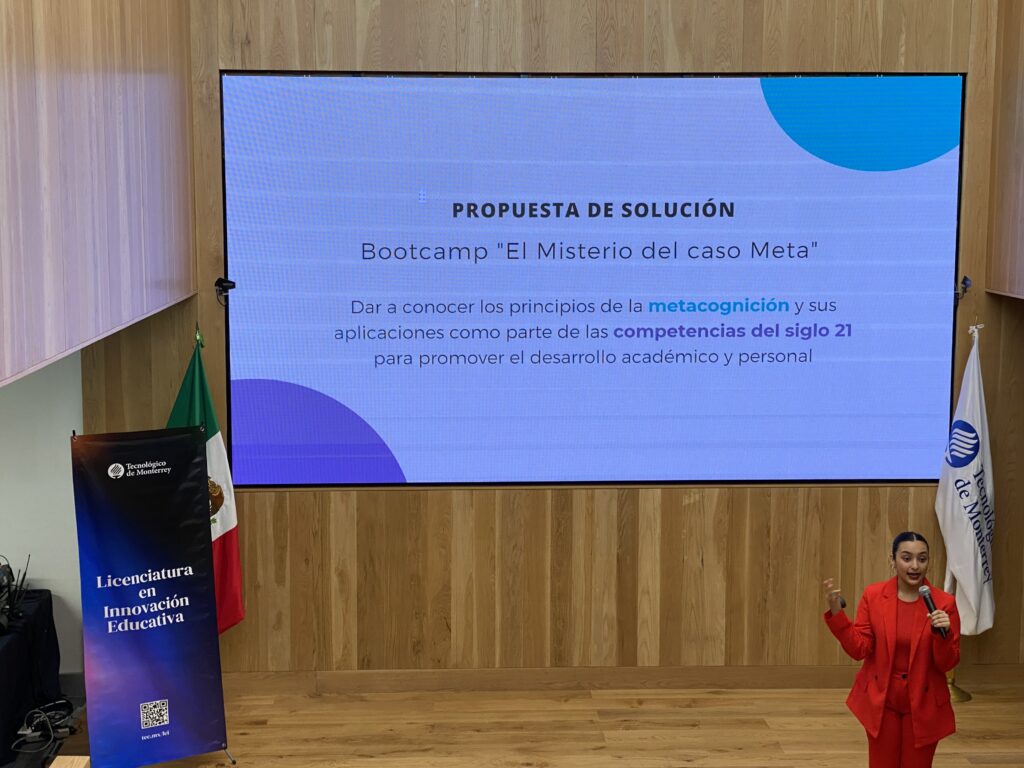
This project offers an intensive course or bootcamp called “The Mystery of the Meta Case” that aims to raise awareness of the principles of metacognition and its applications as part of the 21st-century competencies for personal and academic development. In this way, primary students from private educational institutions in Nuevo León can enhance their performance through in-depth and interactive workshops.
The idea arose from Viviana identifying three challenges in the current environment: educational institutions have a 19th-century infrastructure, 20th-century models and teachers, and 21st-century students; a post-pandemic school gap exists; and technology is seen as a tool but must also be didactics. So, she proposed that learning is not considered merely natural and innate but built on experiences and strategies designed consciously.
Learning to teach | María José Ábrego Ortega
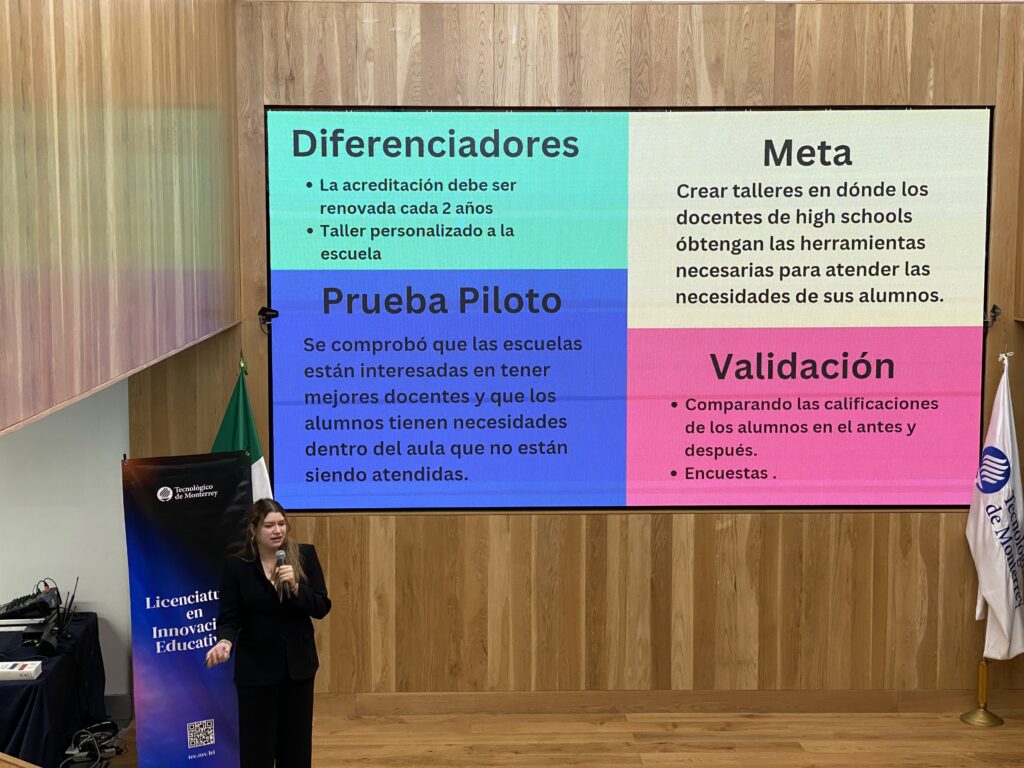
The proposal is to deliver teacher training so they can teach their classes to high school students. The solution provides teachers with the skills and pedagogical tools required to meet the needs of students. The training workshops offer a certification that can be renewed every two years for updates on educational trends.
This accreditation helps nurture one’s resume and includes workshops with experts. María José explained that the implementation methodology involves the application of surveys or focus groups where students define their needs. In the next stage, a diagnosis identifies the teachers’ areas of opportunity, and subsequently, the school designs a personalized workshop where teachers acquire their accreditation.
Leaving Everything in Art | Alejandra Álvarez Ayala
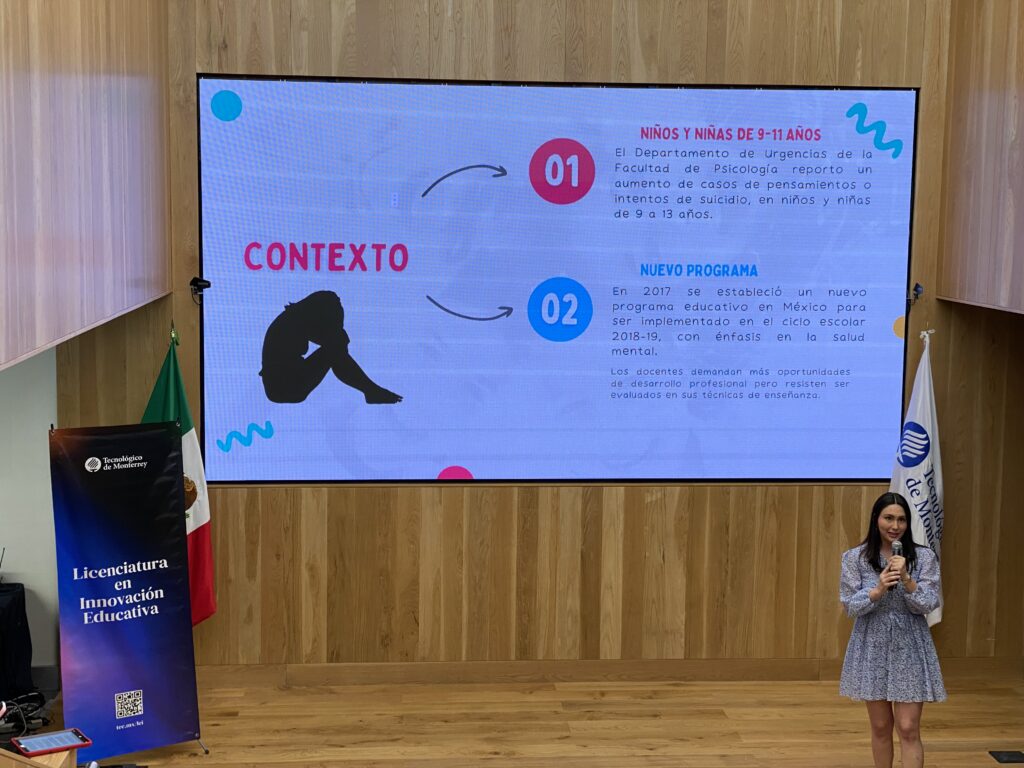
This after-school program focuses on students between 9 and 10 years old, so they express their emotions through different artistic activities. With the help of therapists, art teachers, and specialists in various areas, guidelines are established to perform exercises in a workshop that promotes socio-emotional intelligence.
Alejandra shared that you learn by doing, which can motivate you. Therefore, with resources such as storytelling and creating a story that explains and teaches emotions, students can develop self-expression, self-knowledge, and non-verbal communication skills.
Neurogame: Addressing the post-pandemic educational lag | Katherine Fernanda Ángeles Zaragoza
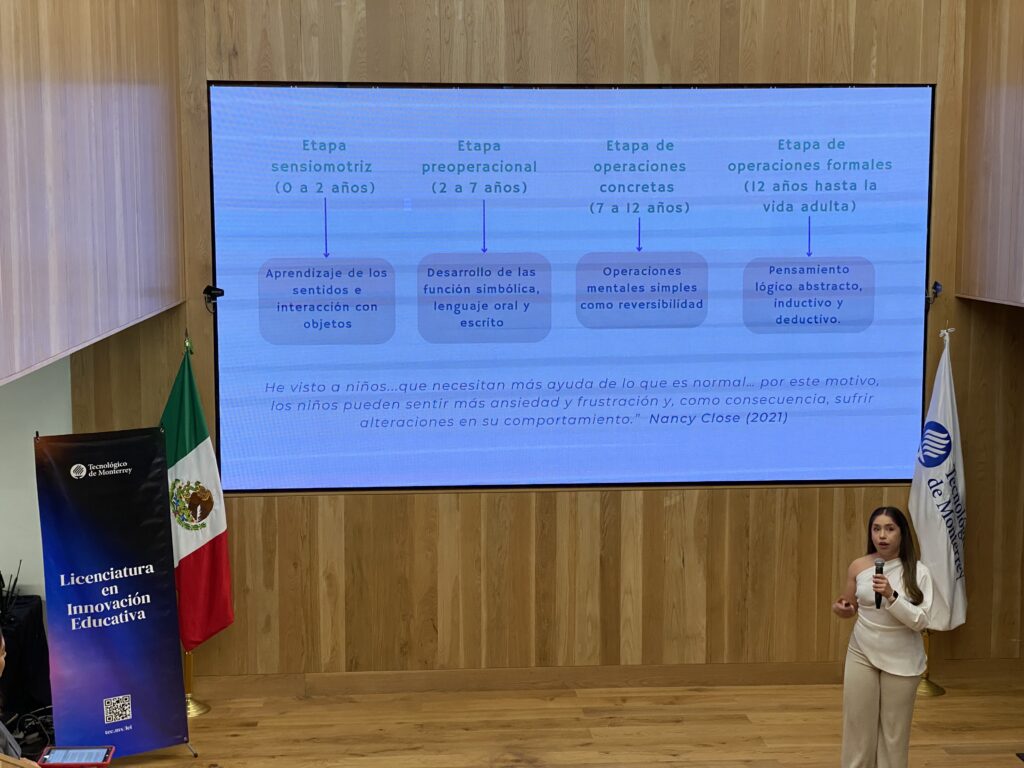
This neurocognitive skills recovery plan is designed for teachers and educational psychologists in educational institutions, but especially for students from 8 to 11 years old. Primary school students may have had a problem in their preoperational development, having difficulty recognizing symbols, not knowing how to write or read correctly, or they find self-regulation and empathy complicated to resolve conflicts.
This program integrated into the curriculum includes training for the specialist through a website with didactic material, monitoring during implementation, and psychological assessment instruments before and after the project. Katherine Fernanda states that through psychoeducation, the development of executive functions through play can reduce the academic lag caused by the pandemic.
Skillz-Up | Julia Paola Payán Flores
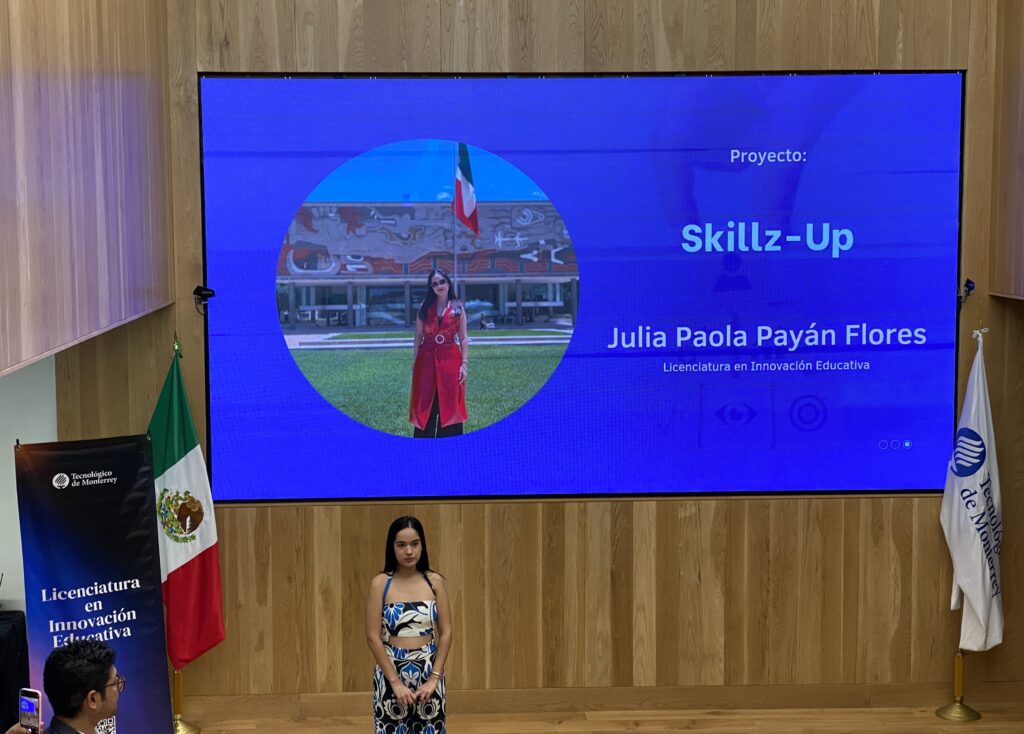
This face-to-face program, presented as a subject, aims to develop soft skills in middle school students (between 11 and 15 years old) through theories, topical trends, and various activities. The exercises stem from an innovative pedagogical approach based on active and meaningful learning theories, instructing by doing, and constructivism, among others.
First, teachers receive an initial training of two days and eight hours emphasizing the importance of soft skills. Julia Paola pointed out that students learn in weekly one-hour classes to develop skills such as creativity, emotional intelligence, critical thinking, oral communication, conflict resolution, negotiation, and teamwork. After one term, students receive a badge of recognition, and those completing all the training by the end of middle school earn a medal.
Workshop: “Learning Together: Teaching Children with Autism” | Georgina Marelly Gutiérrez Benavides
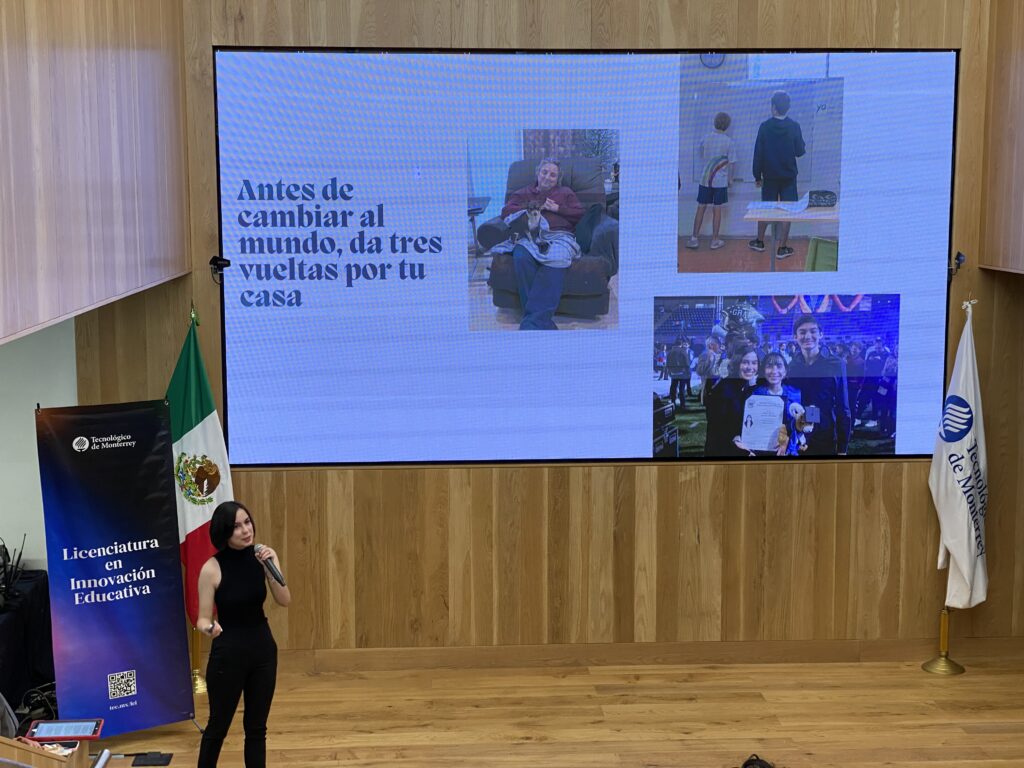
This workshop provides training to teachers by delivering knowledge, tools, techniques, and strategies for diversification and inclusion in the classroom for students diagnosed with autism. Its construction comes from the universal design for learning, i.e., it is inclusive from its creation, and the content is continuously updated.
Georgina Marelly said that, although the initiative aims at teaching staff in educational institutions, the student community with special neurological needs can benefit directly. On the website, teachers can access material to review the resources discussed in the workshop or inquire in depth about a topic. It also has content to use within the classroom.
EvolveEd Mx – Consulting in Educational Innovation with a focus on technological immersion | Paola Michelle González Moreno
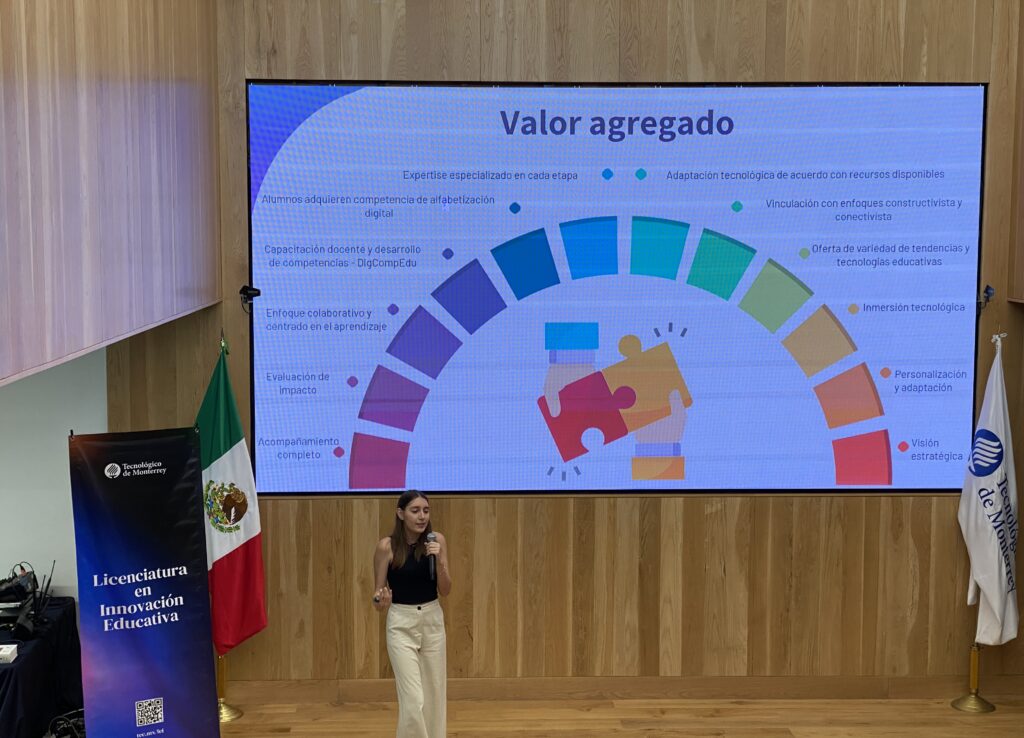
This consulting service for secondary education aims to promote digital transformation and literacy in teachers. Through workshops, teachers can consult advice on educational innovation and find different technologies suited to their contexts. Its mission is to drive meaningful learning with novel solutions.
Paola Michelle said that information and communication technologies should not only serve as pedagogical tools or resources but should also be developed and addressed in contexts where teaching occurs most appropriately. If teachers come together as pedagogical leaders, they can better carry out teaching models and positively impact the behavior of their students.
TalentoXplora | Karla Susana Mendoza Romero
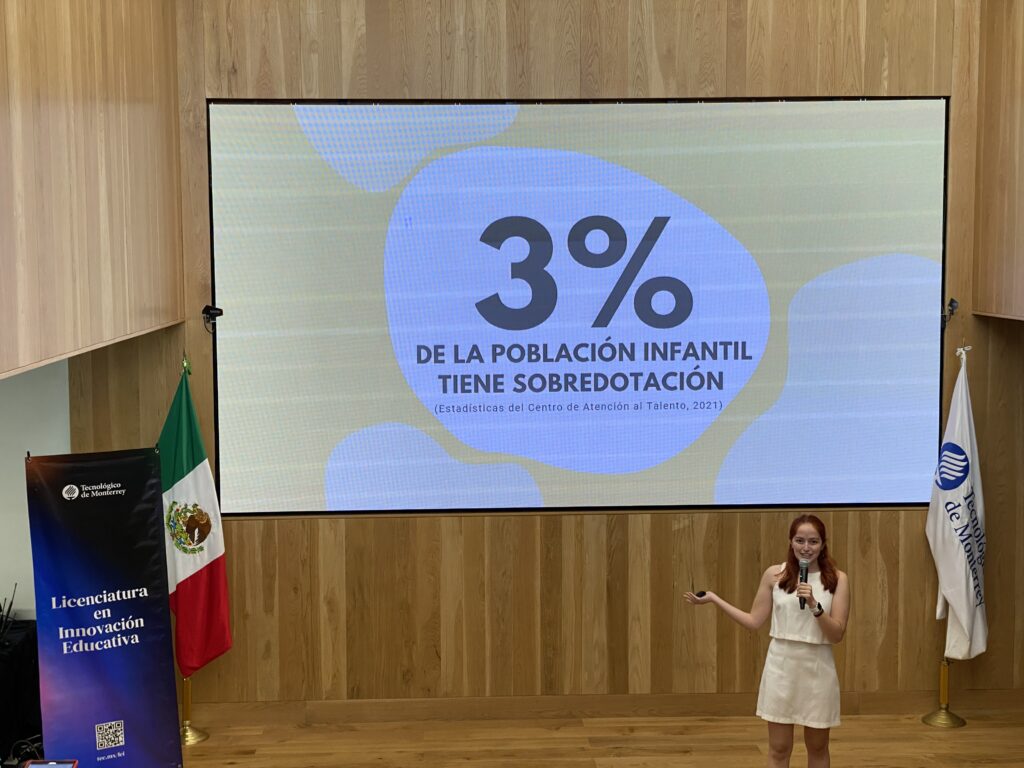
This project seeks to develop a program to include gifted children in conventional schools. The program has three stages to counteract discrimination against gifted people: a dissemination campaign on social networks, the integration of a formal community for family members, and finally, the program’s establishment.
Karla Susana states that these children should not be separated but included in the community. Because they have innate intellectual aptitudes, a false belief arises that their skills do not require support, which is necessary; however, such support is insufficient in many educational institutions. This program provides activities and projects to develop gifted students’ competencies through individualized learning that adapts to the pace of each student.
Health is Wealth | Irma Gabriela Vargas de la Rosa
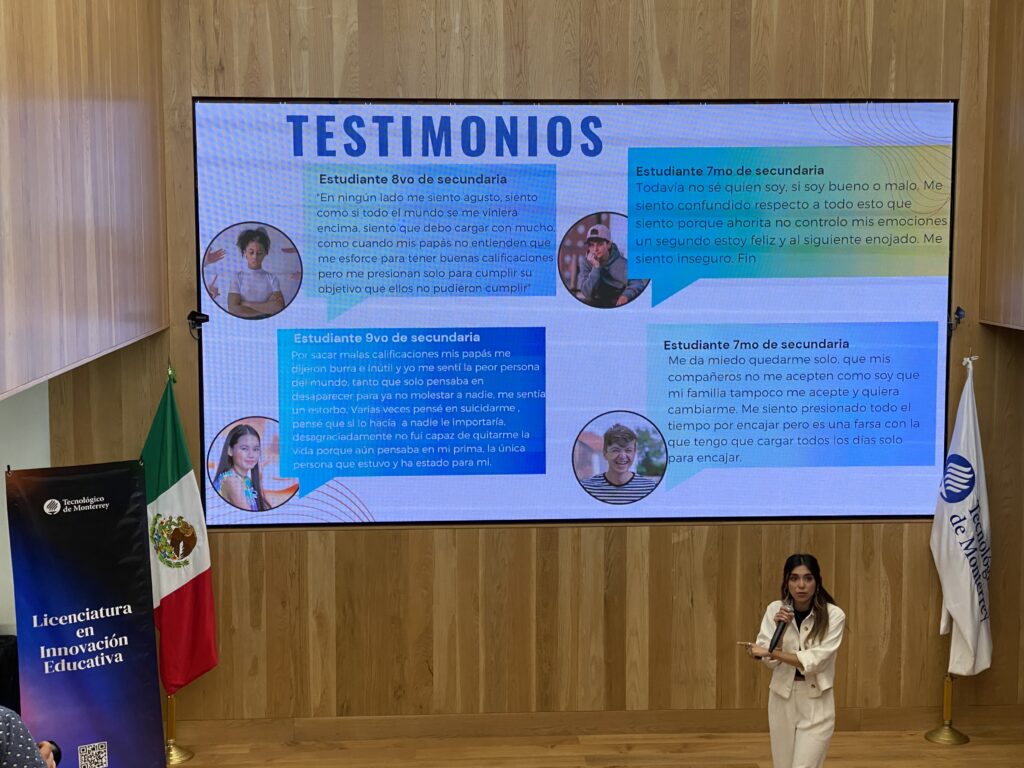
This social initiative has an accompaniment program based on socio-emotional skills. Through workshops, students from private or public institutions can approach an accessible and quality model to work on their emotions. The notion is that social and emotional competencies are crucial for achieving personal, academic, and professional success.
Irma Gabriela explains that the program uses storytelling tools that focus on the life story of each student. Through examples and activities, students learn from cases they can apply in real life. The mission is to train resilient young people who know how to identify and regulate their emotions.
Education everywhere, all the time, at the same time | Arath Joel Robles Alamo
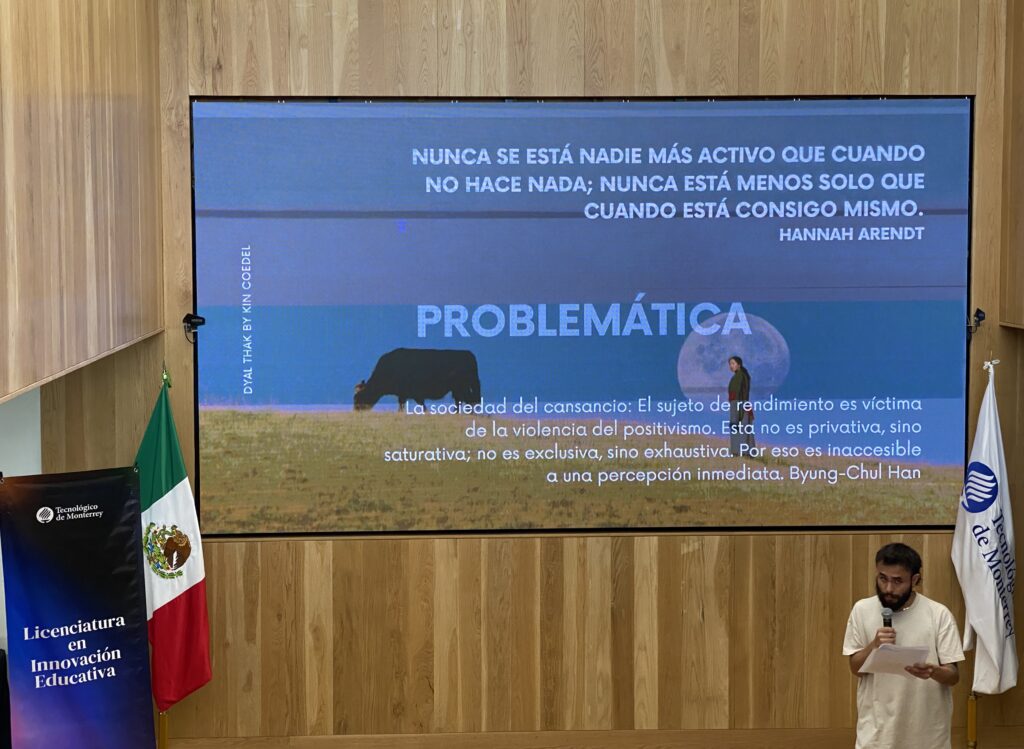
Arath Joel presented a proposal with a philosophical contemplation of current educational problems. The initial objective of his project was to stimulate critical thinking and emotional intelligence from formal education, with the help of active learning, to inspire intercultural and intergenerational dialogue. Its updated purpose lies in the interdisciplinary reflection of daily experiences.
Although the project continues under construction because there are several scenarios to conceptualize, the student with the Degree in Communication ended with the premise “that the contemporary classroom should be broken, resignified, and transformed into the simulacrum of citizenship that we want to see outside its walls.”
After the presentations of the educational innovation projects, Sandra Gudiño, Regional Director of the Department of Education, gave the graduates a congratulatory message and encouraging advice for their professional life. “Human development implies continuous learning, seeking new experiences. Don’t limit yourself to what you already know. Keep your curiosity and thirst for knowledge and take advantage of those opportunities to travel, read, continue education, and participate in very challenging project. This requires being aware of your physical and mental health. […] Remember that you can only be agents of change in the world if you are balanced and take care of your happiness and health.”
Translation by Daniel Wetta
This article from Observatory of the Institute for the Future of Education may be shared under the terms of the license CC BY-NC-SA 4.0 
)
)
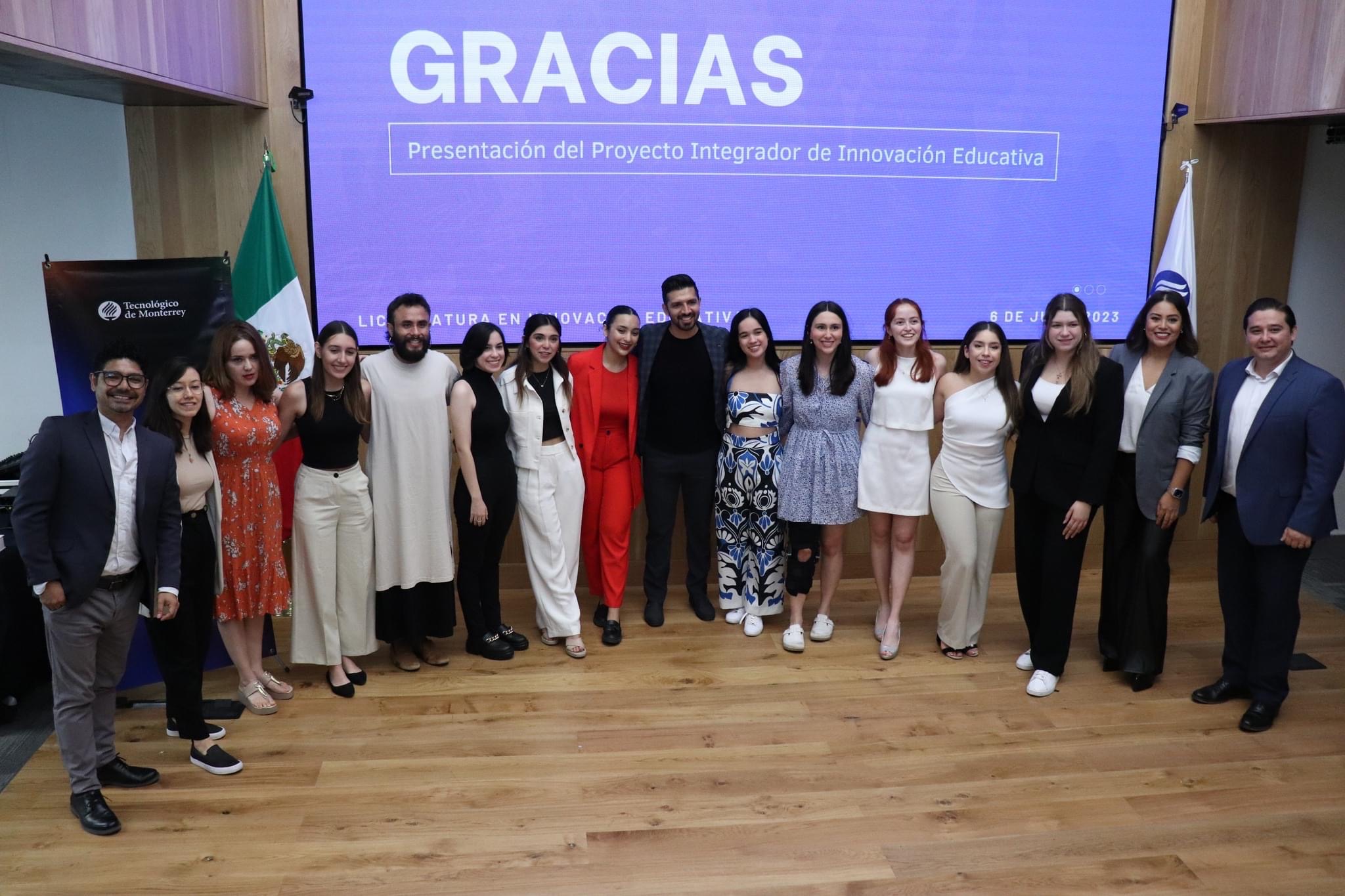

)